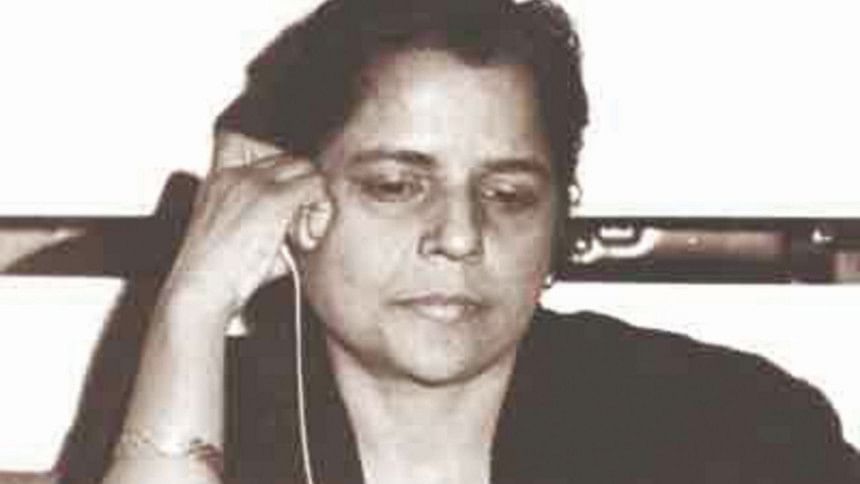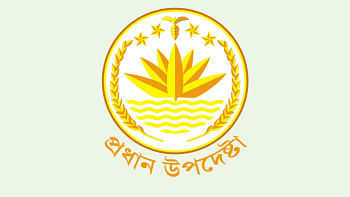She Power: A tribute to my mother Begum Nurjahan Murshid

In the relatively brief history of our nation, a few good women stand out as the torch bearers of women's empowerment and gender justice. Of these Begum Sufia Kamal, Jahanara Imam and Begum Nurjahan Murshid are most noteworthy. They have all passed on to the life hereafter but their legacy of hope for the women of this nation still reverberates strongly within the body politic. It is this legacy that allowed women to stand firm in their determination to fight for equality in the face of obscurantism and misogyny from religious fanatics who would push our women back to the Middle Ages, given half the chance.
My mother, the late Begum Nurjahan Murshid, was a wonderful human being, a consummate politician and a true trail blazer for women's empowerment. We marked her 91st birth anniversary on May 22, 2015. She was the embodiment of 'she power' and devoted her life to the pursuit of equality and gender parity in the context of a broader framework of social justice and equal opportunity for all.
One of seven sisters, Begum Murshid was amongst a very small number of Muslim women who entered higher education and obtained her Master's degree in History from Calcutta University in the mid forties. She was the first Muslim woman to be employed as a broadcaster for All India Radio in 1946.
The partition of the sub-continent amidst extreme Hindu-Muslim antagonism was a 'trial by fire' for this exceptional woman. Influenced as she was by the 'Swadeshi Movement' and Gandhi's fast-unto-death, Nurjahan threw herself into political activism to stem the tide of religious hatred that was consuming the nation at the time. Her vigorous anti-colonial stance and her proximity to stalwarts like Shahid Suhrawardy, A K Fazlul Haq, Maulana Bhashani and Sheikh Mujibur Rahman began to define her political priorities and aspirations for autonomy and freedom for the Bengali nation.
Begum Murshid always saw the emancipation of women as part and parcel of the broader struggle for economic justice of the labouring class. Hers was a holistic, consistent view of the interconnectivity of human struggles.
This trail blazer, my mother, was not just an educationist and aesthete, she had the gumption to consistently challenge social taboos and demand equal rights for women long before the tag 'feminist' entered popular consciousness.
She was the first Bengali Muslim woman to act on stage in East Pakistan in 1949 alongside Munier Chowdhury, at a time when women were not visible on the streets. My mother was then a new bride, having married my father, a young lecturer at the English Department of DU in 1948. The fact that she had the support of her husband and her in-laws is most remarkable given the period we are talking about. In fact, my grandfather Ali Ahmed Khan, a Muslim League MLA encouraged my mother to enter mainstream politics.
She was one of two women directly elected to the Legislative Assembly in 1954 on a United Front ticket. She went on to become a great leader of women and progressive egalitarian politics and embodied the hopes of the whole nation as she threw herself into the movement of the late 60s and subsequently our liberation struggle as part of the first government of Bangladesh (in exile).
Begum Murshid was the first president of the Bangladesh Mahila Samity, founder of Agrani Balika Biddyaloy, and a sponsor of Ain o Shalish Kendra in its infancy. She was his nation's first Health and Social Welfare Minsiter.
My mother was an evolved human being.
I salute my mother and the legendary figures of her generation that have provided us with a foundation that allows us to hope for the future. We must evolve as a society that appreciates fully the centrality of women in national development and the advancement of the society. Anything less is unacceptable.
The writer is head of Career Services, BRAC University.

 For all latest news, follow The Daily Star's Google News channel.
For all latest news, follow The Daily Star's Google News channel. 



Comments